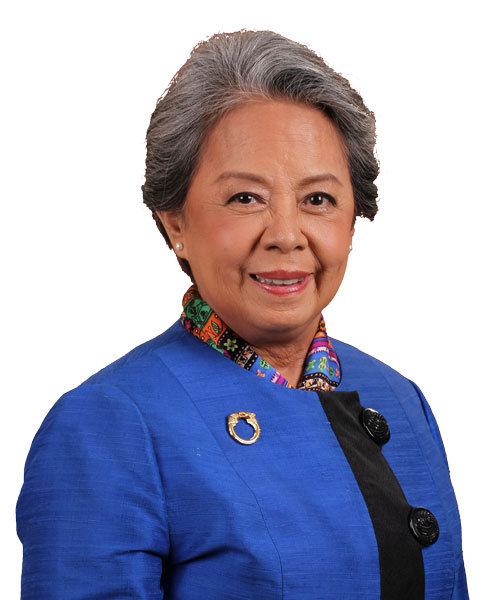The bar is set high for female lawyers, even the nieces of presidents
I have been a lawyer for 34 years but I became a lawyer at the age of 40, inspiring other women to take up law as a mid-life career. I was prompted by my father to take up law and leave my equestrian world. I come from a family of lawyers. My father Antonio was a lawyer, first serving as a fiscal and then a judge. His oldest brother, Ernesto belonged to the first group of Filipinos sent by the government to the US (they were called the pensionados) to study law. Another brother, Elpidio, also a lawyer, was a former president of the Philippines. And the brother he followed, Jose, also a lawyer, co-founded a school that eventually became a university, which included a college of law.

Of counsel, IP & special projects
Accralaw, Manila
I focus on intellectual property and I have served as president and chairman of the Intellectual Property Association of the Philippines (IPAP), the recognized national group of IP practitioners. I am a Councilor with the Asian Patent Attorneys Association (APAA) and an exco Member of the Association Internationale pour La Protection de Propriete Intellectuelle (AIPPI). Until recently I was also the president of the ASEAN Intellectual Property Association.
The Philippines is really a matriarchal society at heart. Before, women were content to be behind the scenes, knowing that we were the real decision makers. Now, women are more upfront and take their rightful place. We had and still have brave articulate women in the Supreme Court, and we have had two women presidents.
In 1985, when I became a lawyer, the glass ceiling was in play, but at ACCRA I was always treated equally. They talk about firms where mundane work and social tasks were assigned to the women. But in my environment we were treated equally. At one time, five out of the firm’s then six departments were headed by women partners.
There were challenges to being a female lawyer, which included first being listened to, and second being taken seriously and accepted. I remember that in the first criminal case assigned to me involving estafa (malversation), I was asked by the Fiscal where my lawyer was.
I didn’t know which offended me more – to be mistaken as the accused or not to be identified as a lawyer! All 4 feet 10.5 inches of me stood up and proudly proclaimed “I am the counsel!”
I also recall having initially a difficult time in getting a Japanese client to accept that I was the head of the legal team. It got to the point where I asked the Japanese client to leave the room with me for a quick chat because he was addressing all his comments to the Pinkerton male private investigator attending the meeting with us.
After that I became his favorite persona! But from women practitioners I meet at international conferences I attend, I am told that in some other jurisdictions, women need to work hard to earn the respect of men.
Before there were fewer women in law practice, but the numbers are increasing. When I was in law school, the student ratio was about 50/50 male and female, whereas now in the Philippines the ratio is about 70/30 in favour of women. But law school faculties, though, are still dominated by men.
And in many law firms the managing partners are men. In ACCRA, I am proud to say that we have had two women co-managing partners, and the current co-managing partner is a lady partner. Some 30% of the partners in the firm are women, and firmwide, 52% of the lawyers are women.
The woman’s job is definitely more difficult because she is juggling home and work. I’m not married so I have more time to do my work, but I can see the struggle for other women – and for Philippine women family always comes first.
So, in that sense, this is a factor that hampers the career paths of many bright female minds. The big difference comes in the billable hours. Women tend to have less hours because they have home commitments.
To young women aspiring to a legal career, I say: Be yourself; know your law; stand your ground; be gentle but assertive, not pushy but neither docile; be fair, kind and God–fearing; be true to yourself; be loyal to your firm; be focused; and learn from your mentors.
Senior women lawyers across Asia share personal stories of successes, struggles and strategies for a more inclusive legal profession. The following mosaic of personal stories identifies some of the nuances that typify women’s experiences in particular Asian jurisdictions, while also drawing on the wealth of shared experiences that bind them.



























